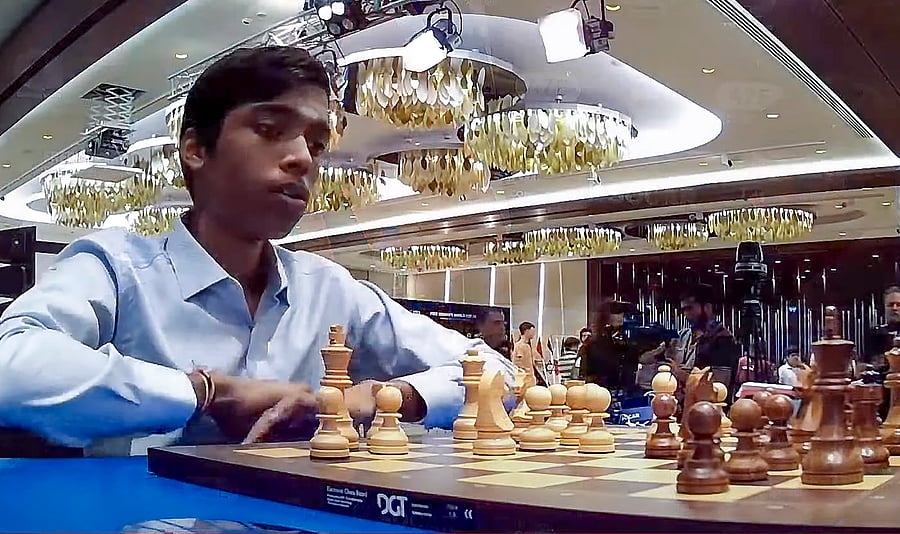
Indian Grandmaster R Praggnanandhaa.
Credit: PTI Photo
By its very nature, chess doesn’t lend itself to hyperbole and dramatics. It’s a genteel, stately discipline, sport’s version of the classical.
And yet, an 18-year-old prodigy held a nation enthralled with a campaign for the top spot in the game, the FIDE World Cup, nearly clinching it before going down in a tiebreaker to Magnus Carlsen in a battle of wits and attrition on Thursday. R Praggnanandhaa grabbed the world’s attention with his epic run in Baku, emerging as a new hero with the potential to spark another revolution as his mentor Viswanathan Anand did nearly four decades ago. Anand’s coronation as India’s first Grandmaster in 1988 was the turning point in Indian chess. Last month, Aditya Samant became the country’s 83rd GM; the country now has a host of established and promising players, men and women, and a good ecosystem for the game.
Praggnanandhaa is an able successor to the five-time world champion from Chennai.
It’s only a matter of time before the affable, soft-spoken young man scales the pinnacle because already, he has showcased a maturity and a sagacity well beyond his years. Drawn to chess because of his older sister Vaishali, herself a woman Grandmaster, his rise has been meteoric, but not unexpected.
Two years ago, he twice bested Carlsen, arguably the greatest player of all time, in online duels. In a discipline where champions are getting younger and younger, he started the World Cup in Baku as India’s brightest hope. True to expectations, he carved through the field, overcoming compatriot Arjun Erigaisi in the quarterfinals and edging out world No 3 Fabiano Caruana in the tiebreaker in the semis. In the finals, he lost to the more experienced Carlsen who was in his elements, after giving him a tough fight. In defeat, he won hearts and respect.
Given the teenager’s performance till now, it is almost certain that he will rule the game in the coming years and will lay claim to its multiple world titles. Chess is not an elitist sport – Praggnanandhaa and his sister come from a modest middle-class background, like most other young Indian stars – and the surfeit of Grandmasters, International Masters and rated players in India testifies to its growing popularity.
Apart from Praggnanada, three other Indian players entered the quarter finals at Baku and made their mark, beating top rated players before their exit. The game now has good following and a strong support system with ample training coaching facilities in the country. Players are emerging even from small towns, and feats like those of Praggnanandhaa and others will help it to flourish further.
